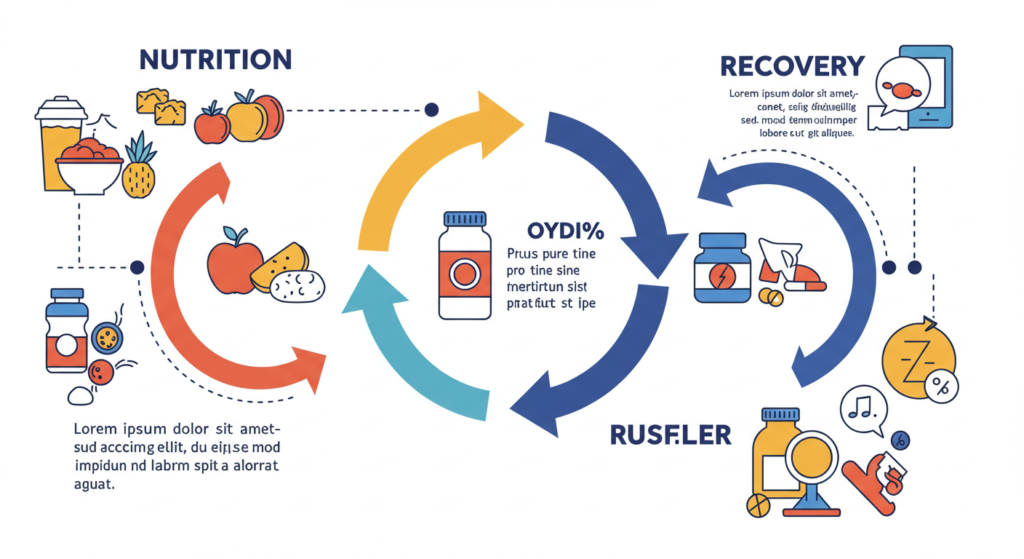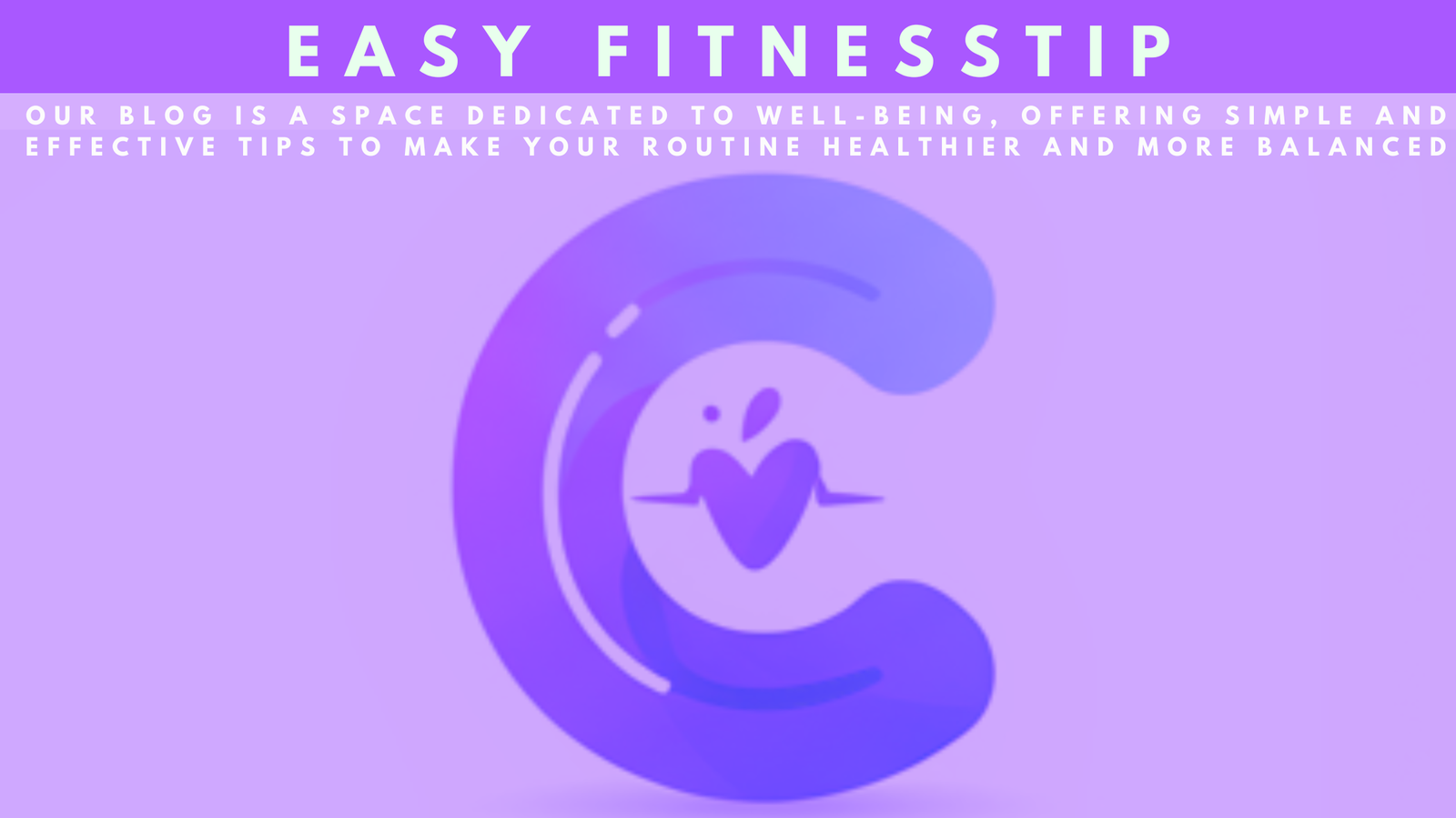
Introduction
In today’s fast-paced world, stress, anxiety, and depression have become unwelcome yet common companions for many. At the same time, cardiovascular diseases remain a leading cause of death worldwide. The surprising convergence of these two health challenges has sparked interest in the role of physical activity in addressing both issues. Recent studies suggest that exercise can significantly improve heart health—and for those struggling with anxiety and depression, the benefits appear to be nearly doubled. This article explores the powerful intersection of physical activity, mental health, and cardiovascular well-being, and provides practical advice for integrating exercise into your daily life.
The Connection Between Exercise and Heart Health
Cardiovascular Benefits of Physical Activity
Regular exercise is known to enhance cardiovascular function in several ways. Physical activity helps strengthen the heart muscle, making it more efficient at pumping blood, which in turn reduces the workload on the cardiovascular system. Key benefits include:

- Improved Heart Function: When you engage in regular aerobic exercise, your heart becomes stronger and pumps blood more effectively throughout your body.
- Lowered Blood Pressure: Consistent physical activity can help reduce both systolic and diastolic blood pressure, lessening the strain on arteries.
- Better Cholesterol Levels: Exercise can raise high-density lipoprotein (HDL) cholesterol—the “good” cholesterol—and lower low-density lipoprotein (LDL) cholesterol, thus reducing plaque buildup in arteries.
- Weight Management: Maintaining a healthy weight through physical activity decreases the risk of heart disease by reducing the burden on the cardiovascular system.
- Enhanced Endothelial Function: The endothelium, the inner lining of blood vessels, responds positively to regular exercise by improving its overall function, leading to better blood flow and reduced risk of atherosclerosis.
These benefits collectively lead to a reduced risk of coronary artery disease, heart attacks, and strokes. The impact is not only preventive but also therapeutic, as a well-designed exercise regimen can contribute significantly to heart recovery and longevity.
Exercise and Mental Well-being
Beyond its physical advantages, exercise also exerts a profound influence on mental health. Here’s how physical activity benefits the mind:
- Reduction of Stress Hormones: Exercise reduces the production of stress hormones like adrenaline and cortisol. A decrease in these chemicals can help alleviate the physical symptoms of stress.
- Release of Endorphins: Physical activity stimulates the release of endorphins, the body’s natural mood lifters. These chemicals can create feelings of happiness and euphoria, effectively counteracting depression.
- Improved Sleep: Regular exercise helps regulate sleep patterns, ensuring that you get restorative rest—critical for emotional balance and mental health.
- Enhanced Cognitive Function: Studies have shown that physical activity improves memory, concentration, and overall cognitive function. This boost in brain power can help manage the symptoms of depression and anxiety.
- Increased Self-Esteem: Achieving fitness goals, no matter how small, contributes to an improved self-image and greater self-confidence. This uplift in self-esteem is vital for those coping with mental health challenges.
The dual benefits of exercise make it an indispensable tool in the fight against both cardiovascular issues and mental health disorders. For individuals dealing with anxiety and depression, the impact of physical activity on heart health is even more significant, as recent research indicates.
The Science Behind Doubling the Benefits
Recent Study Findings
A groundbreaking study presented at the American College of Cardiology’s (ACC) 71st Annual Scientific Session has revealed that individuals suffering from anxiety and depression who engage in regular exercise reap nearly double the cardiovascular benefits compared to those without such conditions. According to the ACC press release, while exercise benefits everyone, its impact on people with stress-related conditions is especially pronounced. The study analyzed health records over several years and found that active individuals with mental health challenges experienced a substantially lower incidence of cardiovascular events.
This research underscores the interconnected nature of mental and physical health. The amplified benefits may be due to the way exercise modifies the body’s stress response and improves both neural and physiological functions. As such, exercise is not merely a tool for weight loss or muscle building—it is a potent intervention for improving overall health.
(American College of Cardiology, 2022)

How Exercise Modulates the Stress Response
The mechanism behind these enhanced benefits lies in the body’s response to stress. Regular physical activity can lead to:
- Attenuated Neural Stress Responses: Exercise decreases activity in brain regions responsible for stress, such as the amygdala. This reduction helps lower the intensity of stress reactions.
- Enhanced Prefrontal Cortex Function: Improved activity in the prefrontal cortex—a brain area associated with decision-making and emotional regulation—helps manage stress and reduce depressive symptoms.
- Reduction in Systemic Inflammation: Chronic inflammation is a common thread in both mental health disorders and cardiovascular disease. Exercise acts as a natural anti-inflammatory, lowering inflammatory markers and thereby reducing cardiovascular risk.
- Improved Autonomic Balance: Exercise helps regulate the autonomic nervous system, improving the balance between sympathetic (fight-or-flight) and parasympathetic (rest-and-digest) functions. This balance is critical for both heart health and mental well-being.
Customizing Your Exercise Routine
Types of Workouts for Dual Benefits
To harness the full spectrum of cardiovascular and mental health benefits, it is important to choose the right mix of exercises. Here are several options:
1. Aerobic Exercises
Aerobic exercises such as walking, jogging, cycling, and swimming are excellent for boosting cardiovascular endurance. They increase heart rate and circulation, which help strengthen the heart and improve lung capacity. Aerobic workouts are also linked to increased endorphin production, making them particularly effective in managing stress and depression.
2. Strength Training
Incorporating resistance training, such as weightlifting or body-weight exercises, can help build and maintain muscle mass. Strength training not only contributes to improved metabolic rate but also enhances self-confidence by marking tangible progress in strength and endurance. When combined with aerobic exercise, strength training contributes to overall cardiovascular and mental health.
3. Mind-Body Practices
Yoga and tai chi are excellent examples of mind-body exercises that combine physical movement with mindfulness and deep breathing. These practices have been shown to reduce stress levels, lower blood pressure, and improve balance and flexibility. The meditative aspects of these exercises help clear the mind and enhance emotional resilience.
4. High-Intensity Interval Training (HIIT)
HIIT involves short bursts of intense activity followed by brief recovery periods. This form of training is particularly efficient at improving cardiovascular fitness and can also stimulate significant endorphin release. Although HIIT is challenging, its time-efficient nature makes it a great option for individuals with busy schedules.
Tips for Tailoring Your Routine
To make the most of your exercise regimen, consider these personalized strategies:
- Assess Your Fitness Level: Start with activities that match your current fitness level. Gradually increase intensity as your strength and endurance improve. This approach minimizes injury risk and ensures sustainable progress.
- Set Realistic Goals: Define clear, achievable objectives. Whether it’s running a 5K or mastering a yoga pose, setting milestones will keep you motivated and help track your progress.
- Mix It Up: Variety is key to avoiding workout boredom. A combination of aerobic, strength, and flexibility exercises ensures comprehensive benefits for both the heart and mind.
- Listen to Your Body: Pay attention to your body’s signals. Rest and recovery are just as important as the workouts themselves. Overtraining can lead to injury and burnout, which may negatively impact mental health.
- Seek Professional Guidance: If you’re new to exercise or have existing health concerns, consulting a fitness professional or a physical therapist can provide personalized advice and a structured plan tailored to your needs.

Real-Life Success Stories and Expert Insights
Personal Journeys to Health
Many individuals have transformed their lives through regular exercise. Consider these stories:
- Jane’s Journey: Jane was diagnosed with high blood pressure and severe anxiety. Overwhelmed by her symptoms, she felt trapped in a cycle of fear and fatigue. By incorporating daily brisk walks and gradually progressing to light jogging, Jane noticed a remarkable change. Within six months, her blood pressure had normalized, and her anxiety episodes had significantly reduced. Jane credits her newfound energy and optimism to her commitment to exercise.
- Mark’s Marathon: Mark struggled with chronic depression and obesity for years. He found that traditional therapies offered only temporary relief. Motivated to try something different, Mark started a running program. Training for a marathon provided him with a clear goal and a structured routine. As his fitness improved, he not only lost weight but also experienced a sustained lift in mood and energy. Mark’s journey is a testament to how exercise can serve as a powerful adjunct to traditional mental health treatments.
Expert Perspectives
Fitness professionals and medical experts have observed firsthand the positive impact of exercise on both cardiovascular and mental health. Dr. Emily Carter, a cardiologist with a focus on lifestyle medicine, emphasizes that “exercise is a potent prescription. Not only does it help manage heart conditions, but it also provides a non-pharmacological boost to mental health.” She explains that the dual benefits stem from a combination of improved blood flow, hormonal balance, and enhanced brain function.
Mental health expert Dr. Raj Patel adds, “For patients with anxiety and depression, regular exercise offers a tangible way to regain control over their health. The act of exercising creates a positive feedback loop: improved mood leads to more activity, which in turn further enhances well-being.” These expert insights reinforce the idea that exercise is not just about physical fitness—it’s a holistic approach to living better.
Integrating Exercise into Your Daily Life
Building a Sustainable Routine
Adopting a long-term exercise regimen can be challenging, particularly when mental health struggles are part of the equation. However, a few strategies can help ensure that physical activity becomes a regular part of your life:
- Schedule It: Treat exercise as an important appointment. Block out time in your calendar and stick to it, even if it’s just a short walk during your lunch break.
- Create a Support System: Join local fitness groups or online communities where you can share your progress and challenges. Social support is key to maintaining motivation.
- Track Your Progress: Keeping a journal or using a fitness app can help you monitor your achievements. Tracking progress provides both accountability and satisfaction, making it easier to stay committed.
- Celebrate Small Victories: Whether it’s a new personal best or simply a day without feeling overwhelmed, celebrate every achievement. Positive reinforcement can boost morale and reinforce your commitment to a healthier lifestyle.
Overcoming Barriers
Many face obstacles when trying to start an exercise routine. Common barriers include lack of time, motivation, or physical limitations. Here are some tips to overcome these challenges:
- Time Constraints: Even 15 to 20 minutes of physical activity can make a significant difference. High-intensity interval training (HIIT) or brisk walking can be squeezed into a busy schedule.
- Lack of Motivation: When motivation wanes, remind yourself of the benefits. Visualize improved energy levels, reduced anxiety, and better overall health. Setting small, incremental goals can also create a sense of accomplishment.
- Physical Limitations: Adapt your workouts to your abilities. Low-impact activities like swimming or yoga can provide cardiovascular benefits without putting undue stress on your joints. Consulting with a healthcare professional can help tailor an exercise regimen that fits your unique needs.
Conclusion: Embracing a Healthier Future
The evidence is clear: physical activity is a powerful tool that not only strengthens the heart but also improves mental health, particularly for those battling anxiety, depression, and stress. The dual benefits of exercise mean that with each workout, you’re not only nurturing your cardiovascular system but also taking an active step toward better mental health.
If you’re struggling with anxiety or depression, consider how regular exercise might enhance your quality of life. Start small, be consistent, and gradually build up your routine. The journey may be challenging, but the rewards—improved heart health, a more positive outlook, and a better overall quality of life—are well worth the effort.
Remember, exercise is not a one-size-fits-all solution. It is a personalized journey that should be adapted to your unique needs and abilities. With the guidance of professionals and the support of communities, you can turn exercise into a cornerstone of a healthier, happier future.
References
- American College of Cardiology (2022). “Exercise Holds Even More Heart Health Benefits for People with Stress-Related Conditions.”
Available at: https://www.acc.org/About-ACC/Press-Releases/2022/03/23/18/18/Exercise-Holds-Even-More-Heart-Health-Benefits-for-People-with-Stress-Related-Conditions?utm_source=chatgpt.com - Harvard Health Publishing (n.d.). “Exercising to Relax.”
Available at: https://www.health.harvard.edu/staying-healthy/exercising-to-relax?utm_source=chatgpt.com - ScienceDirect (2023). “Effects of Exercise on Stress and Cardiovascular Function.”
Available at: https://www.sciencedirect.com/science/article/abs/pii/S0735109724004182?utm_source=chatgpt.com - Mayo Clinic (n.d.). “Exercise: 7 Benefits of Regular Physical Activity.”
Available at: https://www.mayoclinic.org/healthy-lifestyle/fitness/in-depth/exercise/art-20048389 - National Institute of Mental Health (NIMH). “Depression.”
Available at: https://www.nimh.nih.gov/health/topics/depression
By understanding the deep interconnection between mental and cardiovascular health, this article aims to empower readers to use exercise as a means of not only strengthening their hearts but also alleviating the burdens of stress, anxiety, and depression. Whether you are just starting your fitness journey or looking to enhance your current routine, the strategies and insights shared here can serve as a roadmap to a healthier, happier life. Embrace the challenge and take control of your health—one workout at a time.
This comprehensive article combines scientific research, expert insights, and practical advice to present a holistic view of how exercise can serve as an effective remedy for both cardiovascular and mental health challenges. We encourage you to explore the references provided for further information and to join communities that share the journey toward improved health.








